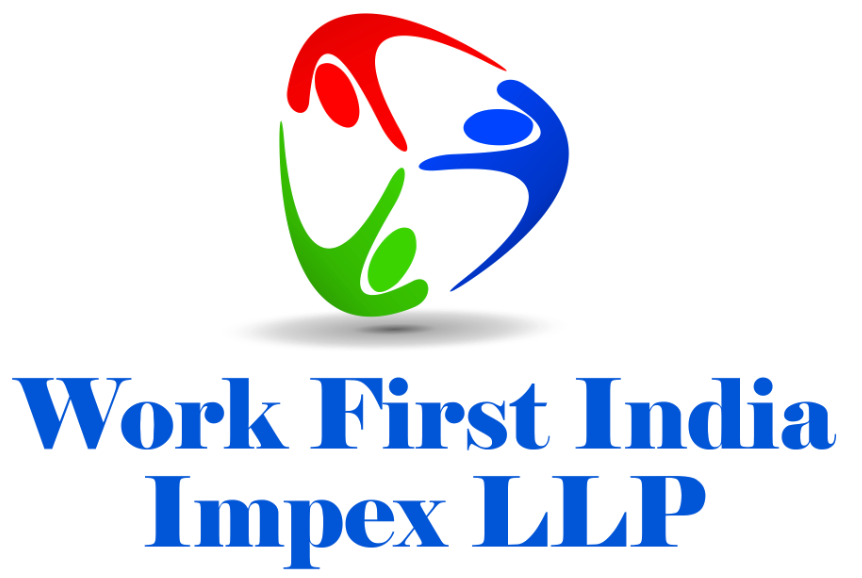IMCECA Certificate Registration
GET FREE CONSULTATION
IMCECA Certificate Registration - Procedure, Documents and Fees
IMCECA stands for India-Malaysia Comprehensive Economic Cooperation Agreement, and this is one of the most significant preferential trade agreements that has been signed between these two countries to enhance their economic cooperation and trade relations. The IMCECA Certificate was signed to enhance India’s Free Trade Agreement (FTA) with Malaysia to create a higher level of trade, investment, and cooperation in diverse areas of mutual interest. It has fostered more business links in various fields, including manufacturing, IT, pharmaceuticals, etc., and thus increased exports and imports. For the last ten years, there has been bilateral trade between the two countries that has proved to have been mutually beneficial, and there are more crossing opportunities.
The IMCECA Registration is vital for broader ASEAN-India trade agreements. It is much more specific and concerns the free access to markets in different sectors, which is vital for India to develop its role in regional cooperation on economic liberalization. These free trade agreements establish the foundation for enhancing understanding between the member countries of ASEAN and open up vast opportunities for India to enter the markets of other ASEAN countries with its products. The IMCECA supports India’s larger trade strategy, enhancing its influence in the ASEAN region, which is a rapidly growing market.
The Free Trade Agreement (FTA) made between India and Malaysia contains various areas of economic cooperation, such as trade liberalization, cuts in tariffs, better market access opportunities, and collaborations. This guide provides information on how to access the IMCECA Certificate and shows how IMCECA can help businesses
Table of Content
- What is India-Malaysia Comprehensive Economic Cooperation Agreement (IMCECA)?
- Benefits of IMCECA (India-Malaysia CECA)
- Sectors covered under IMCECA
- Procedure for IMCECA Registration
- Documents Required for IMCECA Registration
- IMCECA Impact on Bilateral Trade Policies
- Fees for IMCECA Registration
- Conclusion
- Frequently Asked Questions (FAQs)

What is India-Malaysia Comprehensive Economic Cooperation Agreement (IMCECA)?
The India-Malaysia Comprehensive Economic Cooperation Agreement (IMCECA) is the most important trade agreement linking economic investment flows between the two nations to increase overall bilateral trade. It facilitates trade cooperation, developing the major goods in electronics, pharmaceuticals, and palm oil with both countries. Over the years, export and import trade relations between India and Malaysia have been performing well because of tax reductions done by IMCECA. This treaty creates cooperation in trade, which leads to liberalization that makes it possible for business enterprises to access markets besides taking advantage of reduced costs. Being able to reduce the trade barriers, IMCECA benefits the Indian businesses, increases the trade policy percentage figures of India-Malaysia trade relations, and increases the India-Malaysia trade disparity through the enhancement of exports as well as investments.
Benefits of IMCECA (India-Malaysia CECA)
Here are some key benefits of the India-Malaysia Comprehensive Economic Cooperation Agreement (IMCECA):
Enhanced Trade Relations – IMCECA improves bilateral trade by reducing supply chain barriers, allowing businesses to more easily import and export a variety of products and services. The agreement has positively impacted trade volume and product diversity between the two countries.
Tariff Reductions and Cost Savings – IMCECA has led to tariff reductions, removing tariffs on specific goods and commodities, which helps in reducing the cost of imports and exports between the two nations.
Boost for Businesses and Investments – Businesses benefit from increased market access, enhanced investment opportunities, and cost efficiencies. Both Malaysian and Indian firms have the potential to expand their market share and invest in various sectors such as manufacturing, services, and technology.
Improved Trade Balance – By promoting exports and removing trade barriers, IMCECA helps balance the trade between India and Malaysia, contributing to stable and long-term economic growth for both countries.
Sectoral Growth and Economic Diversification – Industries like IT, pharmaceuticals, electronics, palm oil, and automobiles have seen significant growth due to IMCECA. The agreement supports both large enterprises and SMEs, enabling them to access new markets and expand their reach.
Sectors Covered Under IMCECA (India-Malaysia CECA)
The India-Malaysia Comprehensive Economic Cooperation Agreement (IMCECA) covers a wide range of sectors to enhance trade and economic collaboration. Here are the key sectors covered:
Agriculture and Food Products – This sector includes grains, raw agricultural products, food products, dairy, beverages, and edible oils. It facilitates tariff reduction, improves market access, and ensures food safety through streamlined measures.
Automobiles and Manufacturing – IMCECA supports the auto sector by promoting trade in vehicles, automotive products, and machinery. It also focuses on industrial manufacturing, encouraging investment in infrastructure and fostering business partnerships between Indian and Malaysian companies.
Pharmaceuticals and Healthcare – IMCECA enhances trade in pharmaceuticals, medical equipment, healthcare services, and joint R&D initiatives. It facilitates smoother market entry for medicines and promotes regulatory harmonization in the healthcare sector.
Information Technology (IT) Telecommunications, and E-Commerce – This sector covers software development, digital services, cybersecurity, and IT- enabled services. It also promotes trade in telecommunications equipment and fosters cooperation in e-business.
IMCECA Registration Process
The procedure of IMCECA registration involves several steps to ensure eligibility for tariff and trade benefits under the agreement. Here's a step-by-step process for obtaining the IMCECA Certificate of Origin:
Step 1: Application Submission
Submit a completed application with required documents, including product details, manufacturing information, and certifications, to the Export Inspection Council (EIC) online or at regional offices for review.
Step 2: Document Verification
Documents submitted to EIC officials are verified to ensure authenticity. This ensures that the products do not bear fake IMCECA trademarks and that the production details align with the provided certifications.
Step 3: Factory Inspection (if needed)
If required, EIC may carry out a physical assessment of the goods at the manufacturing premises to ensure the documentation provided is valid for certification approval of Indian-origin goods.
Step 4: Approval
After the verification process, EIC grants approval for the application, certifying that the exporter has met the standards for the issuance of the Certificate of Origin under IMCECA.
Step 5: Issuance of Certificate
Once approved, EIC issues the Certificate of Origin (CoO) either electronically or in physical form. This certificate is then presented to Malaysian customs for the application of preferential tariffs under the agreement.
Documents Required for IMCECA Registration
To obtain a Certificate of Origin under the India-Mauritius Comprehensive Economic Cooperation Agreement (IMCECA), you will need to provide the following documents:
- Shipping Bills
- Bill of Lading/Airway Bill
- Invoice Copy
- Packing List
- Details on Inputs/Consumables Used in Export Products
- Importer Exporter Code (IEC)
IMCECA Impact on Bilateral Trade Policies
The India-Malaysia Comprehensive Economic Cooperation Agreement (IMCECA) has had a substantial impact on trade relations and policy frameworks between the two countries. Below are the key areas of influence:
Trade Growth : IMCECA has significantly boosted trade volumes and investment flows between India and Malaysia, enhancing bilateral economic
activities.
Economic Ties : The agreement promotes deeper cooperation in goods, services, and investments, aligning both countries toward mutual economic growth and strategic collaboration.
Sectoral Benefits : Liberalized trade has particularly benefited sectors like electronics and petroleum, supporting increased exports and streamlined market access.
Strategic Partnerships :Initiatives to explore trade in local currencies have strengthened domestic economic resilience and fortified strategic economic partnerships between India and Malaysia.
IMCECA Registration Fees
The total cost for IMCECA registration is ₹6,235, which includes the government fee, registration, application, and professional charges. Here is the detailed
fee structure:
| Particulars | Fees |
|---|---|
| Government Fee | ₹ 736 |
| Application Fee | ₹ 2000 |
| One time registration fee | ₹ 500 |
| Professional fee | ₹ 2,999 |
| Total Cost of Registration | ₹ 6,235 /- Only |
Note : This certificate is generally valid for one year from the date of issuance. Exporters must renew the certificate annually to continue availing benefits under the IMCECA agreement.
Conclusion
IMCECA is significant for enhancing the trade and investment relations between India and Malaysia. IMCECA facilitates market access, and lowers tariffs, which will greatly benefit sectors such as information technology, pharmaceuticals, and manufacturing. It involves qualification for the broader tariff preferential treatment facilitated by the Export Inspection Council (EIC). IMCECA helps in the propagation of the free flow of exports and investments for enhancing bilateral relations. To avail of these benefits, businesses require the Certificate of Origin to enhance the long-term bilateral economic cooperation between India and Malaysia under this free trade agreement.
Why Professional Utilities?
At Professional Utilities, we leverage our industry knowledge and expertise to help businesses navigate complex regulations, minimize risks, and optimize operations for maximum efficiency and profitability.
- One Stop Corporate Solution
- Free Expert Assistance
- PAN India Services
- Google Verified Business
- Dedicated Support Staff
- Money-Back Guarantee
TRUSTED BY |






Frequently Asked Questions (FAQs)
It is also known as IMCECA, initiated in 2011 to expand trade, investment, and services in India- Malaysia bilateral trade, including reduction of tariffs and enhanced market access.
India has CEPA agreements with South Korea and Japan to improve trade by eliminating barriers such as tariffs and enhancing investment flows.
India has FTAs with ASEAN, Japan, South Korea, UAE, Sri Lanka, Mauritius, and Australia, supporting liberalized trade and deeper economic cooperation.
A CEPA is broader than an FTA as it includes not just goods but also services, investment, and deeper economic cooperation between countries.
Yes, SMEs can apply for the IMCECA Certificate and enjoy benefits like tariff reductions and broader market access under the agreement.
It typically takes a few weeks depending on document verification and whether a factory inspection is required by the Export Inspection Council (EIC).
No, only goods wholly manufactured in India are eligible for the IMCECA Certificate, as proof of Indian origin is mandatory for tariff benefits.
- Hotel
- Railways
- Liquor
- Health & Medical
- Food Processing
- Dangerous/ Haz. Goods
- Tea & Coffee
- Capital Goods
- Recycling
- Rubber
- NGOS
- Silk
- Handloom
- IT & BPM
- Steel
- Automobile
- Tobacco
- Constructions
- Apparels
- Footwear
- Furniture
- Gems and Jewellery
- Tourism & Hospitality
- Consumer
- Electronics
- Chemicals
- Telecom
- Oils & Gas
